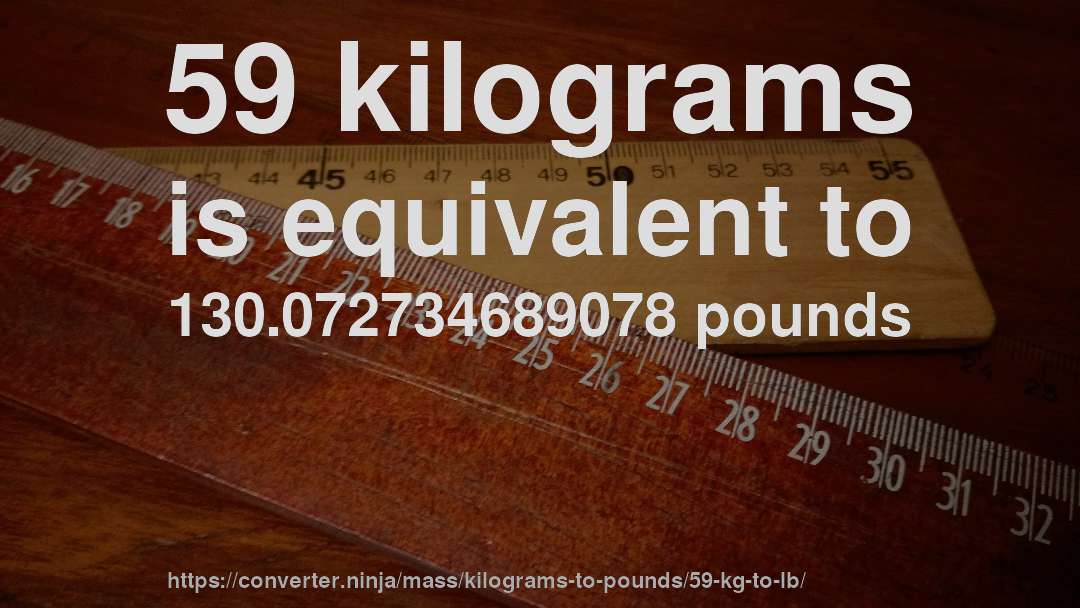59 kg to lb - How much is 59 kilograms in pounds? [CONVERT] ✔

59 kilograms is equivalent to 130.072734689078 pounds.
We know (by definition) that: 1 kg ≈ 2.2046226 lb
We can set up a proportion to solve for the number of pounds.
1 kg 59 kg ≈ 2.2046226 lb x lbNow, we cross multiply to solve for our unknown x:
x lb ≈ 59 kg 1 kg * 2.2046226 lb → x lb ≈ 130.0727334 lbConclusion: 59 kg ≈ 130.0727334 lb
The inverse of the conversion factor is that 1 pound is equal to 0.00768800627118644 times 59 kilograms.
It can also be expressed as: 59 kilograms is equal to 1 0.00768800627118644 pounds.
Approximation
An approximate numerical result would be: fifty-nine kilograms is about one hundred and thirty point zero six pounds, or alternatively, a pound is about zero point zero one times fifty-nine kilograms.
Units involved
This is how the units in this conversion are defined:
Kilograms
The kilogram is the base unit of mass in the International System of Units (the Metric system) and is defined as being equal to the mass of the International Prototype of the Kilogram. The avoirdupois (or international) pound, used in both the imperial and US customary systems, is defined as exactly 0.45359237 kg, making one kilogram approximately equal to 2.2046 avoirdupois pounds. Other traditional units of weight and mass around the world are also defined in terms of the kilogram, making the IPK the primary standard for virtually all units of mass on Earth.
Pounds
The pound or pound-mass (abbreviations: lb, lbm for most pounds) is a unit of mass used in the imperial units, United States customary and other systems of measurement. A number of different definitions have been used, the most common today being the international avoirdupois pound which is legally defined as exactly 0.45359237 kilograms, and which is divided into 16 avoirdupois ounces.[3] The international standard symbol for the avoirdupois pound is lb.The unit is descended from the Roman libra (hence the abbreviation lb). The English word pound is cognate with, among others, German Pfund, Dutch pond, and Swedish pund. All ultimately derive from a borrowing into Proto-Germanic of the Latin expression lībra pondō a pound by weight, in which the word pondō is the ablative case of the Latin noun pondus.
[1] The precision is 15 significant digits (fourteen digits to the right of the decimal point).
Results may contain small errors due to the use of floating point arithmetic.ncG1vNJzZmibn6PDpr7Tnqlnppmjt6J7zJqqrGebnrmws9GapKxlpKR6sbvUp5usZ2VueqyzjK2mZqSSZA%3D%3D